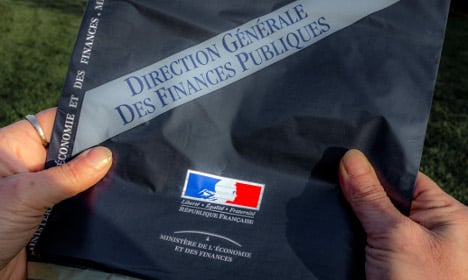When you first arrive, French immigration authorities not only don’t tell you what you need to know, they don’t seem bothered that there’s not even basic information available online.
I was therefore left to do my own research via newsletters and websites, which didn't always lift the confusion.
READ MORE The essential information about this year's French tax declarations

It was in one of those newsletters that I learned that as long as you are a fiscal resident of France, you have to file a tax return. A number of questions may come to your mind when you read that statement:
What’s a fiscal resident of France?
Anyone who is here more than 183 days a year. In my case, I arrived in December 2013, so I didn’t have to file anything for 2013, as I wasn’t yet a fiscal resident, but in 2015 I had to file taxes for 2014, as I had been in France over 183 days that year.
Unlike the US, France – and almost every other country in the world with a functioning tax system – makes a distinction between citizenship and tax residency.
It’s perfectly possible to be a French citizen but to be a tax resident of another country.
Not so for American citizens. Wherever you live, whatever you do, you are always expected to file a US tax return. The irony that such a policy emanates from a country ostensibly founded on a tax revolt should not be lost on most.
But I’m here on a visa type that doesn’t allow me to earn income in France. How can I file a tax return (and why would I need to)?
It may seem that these ideas of earning and filing are connected, but they aren’t.
In fact, in the US there’s an entire industry built around tax refunds and getting them into your hands as soon as possible. Millions of people in the United States file tax returns who don’t owe anything.
So too here in France you may not owe taxes but you’re still required to file them, whether you’re a French citizen or not, whether you are making money or not, as long as you’re here 183 days a year or more.
READ MORE How to renounce your American citizenship – and why you might want to

READ MORE The French tax breaks you don't want to miss out on
Why didn’t anyone tell me to do this?
The short answer is that the authorities don’t always tell you what you need to know. That’s just part of life in France.
The longer answer makes more sense when you think of not just how France, but how many countries are organised.
The French Ministry of Finance does not share information with the immigration authorities.
As far as the French government is concerned, this is a ponderous and unnecessary integration.
One department is concerned with whether you are paying your fair share for living in the paradise that is this country, the other is concerned with whether you are legally staying here.
READ MORE Red tape revolution: Citizens in France get the right to make mistakes on official forms
If you consider that many visas are issued for people staying under 183 days (some students or au pairs, for example) who wouldn’t be responsible for filing taxes, you can start to see why it doesn’t follow that just because you got a visa to be here, that you are obliged to pay taxes, or that the French government would think of explaining things to you.
Things can change if you obtain a ten-year carte de séjour permanent. That card allows for you to leave France for up to three years – even consecutively if you would like – during that 10 year period.
If you do leave France for that time period you’ll be a tax resident somewhere else, ostensibly. But Americans, don’t worry – no matter where you go, you’ll still get to file!
I remember being infuriated when I first learned about this requirement years ago, especially because my command of French was just developing, and I certainly didn’t possess the technical French accounting vocabulary, much less knowledge of the tax code, to make sure I was crossing all my Ts and dotting all my Is.
It became even more complex when I obtained the Profession Liberale visa and was not only paying taxes for my French business, but also for other French income I had to account for.
You may be a do-it-yourself type, and if you’re a native speaker of the language you are filing taxes in, I say go for it.
But if you’re not a native speaker of French, or do not possess, by coincidence, great knowledge of accounting or tax policy in the Fifth Republic, you might consider hiring someone to help you do those taxes.
Yes, it’s a bit irksome that you have to pay to file taxes that indicated that you don’t owe any taxes, but it’s just one more (small) way that we pay for living in what is, for many of us, a dream country. So, set aside your irritation and do what needs to be done.




 Please whitelist us to continue reading.
Please whitelist us to continue reading.
This guy is worth checking out. I’ve perused his website and bookmarked it.
But he seems like just another self-promoter on the Internet/YouTube.
His job is promoting himself and giving mostly ersatz advice–for a fee.
I did end up taking Stephen’s course on the long-term visa. It was cheap and well worth it. He has also, after some prompting, answered other questions I had.